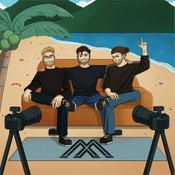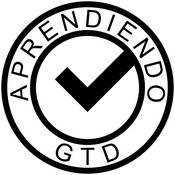80 episodios

3I/ATLAS, CKM Syndrome, And Mosquitos’ Final Frontier
24/10/2025 | 34 min
This week on Break It Down: a potential environmental trigger for autism has been identified, interstellar object 3I/ATLAS is doing weird things with its tail, 90 percent of people are at risk of a newly recognized syndrome, why we know the Denisovans didn’t hook up with the Jomon, as Iceland falls, mosquitos have just one place left on Earth they’ve yet to conquer, and why are people talking to “wind phones”? It’s all to do with “after-death communications”. So, sit back, relax, and let’s Break It Down… Links: Environmental trigger for autism Trump and Tylenol 3I/ATLAS tail changed direction CKM syndrome Extinct humans no Denisovan DNA Mosquitos’ final frontier Wind phones CURIOUS The Vault YouTube The Big Questions - Why do people believe in the paranormal? Sign up with code NESSIE50 for 50% off* *Terms and Conditions: 50% OFF PROMO CODE: NESSIE50 offer for 1 billing period of an All Access Subscription: Annual paid subscription only on iflscience.com. Offer starts September 30, 2025, and ends November 30, 2025, 12:00 am EST. To apply the promo code, you must enter it prior to completing checkout. Your credit card will be automatically charged upon checkout completion, and your subscription will continue until you cancel auto-renew. You can cancel at any time. Cancellation takes effect at the end of the billing period, and you will not be charged upon renewal. If you choose to renew, no action is required, and the full amount will be billed at the start of the renewed term. Taxes may apply. Promo codes are not transferable/redeemable for cash or credit. Membership paid subscriptions are only available in Canada, the United States (excluding Puerto Rico and US territories), the United Kingdom, and Australia. Our standard terms & conditions apply.

A Two-Headed Fossil, 50/50 Spider, And World-First Butt Drag
10/10/2025 | 32 min
This week on Break It Down: 3I/ATLAS is a 10 billion-year-old time capsule, a world-first fossil captures the moment a rock hyrax dragged its butt 126,000 years ago, a living person received a pig liver transplant for the first time, the “oldest human habit” might not be what it seems, a rare gynandromorph spider is a 50/50 wonder, and what is this prehistoric creature with two heads? We asked a dinosaur expert. So, sit back, relax, and let’s Break It Down… Links: 3I/ATLAS Butt drag fossil Trackways of fish leaving the ocean Pig liver transplant Oldest human habit 50/50 spider Two-headed fossil Sword Dragon of Dorset CURIOUS magazine What lives in Loch Ness? The Big Questions What’s all the fossa-bout?

Mummified Cheetahs, Skin Cells Turn Into Eggs, And Almost Life On Enceladus
03/10/2025 | 38 min
This week on Break It Down: the second oldest use of the color blue ever has been discovered in Europe dating back 13,000 years, “chemical fossils” suggest the oldest life on Earth may have been sponges 541 million years ago, skin cells have been turned into fertilizable egg cells thanks to some pretty nifty genetics research, the world’s first naturally mummified big cats have been found in a cave in Saudi Arabia, complex chemistry coming from Saturn’s icy moon Enceladus could be a big clue to eventually finding life in the Solar System, and we remember the pioneering scientist Jane Goodall and her incredible life. So, sit back, relax, and let’s Break It Down… Links: Blue pigment Oldest animals Skin cells Babies born with genes from three people Mitochondrial disease Mummified cheetahs Enceladus Goodbye Jane Goodall CURIOUS Spooky Season at the Vault

Neanderthal Noises, Dome-Headed Dinosaurs, And Mystery Larvae
19/9/2025 | 34 min
This week on Break It Down: Homo habilis might not have been the apex predator we thought it was, the oldest and most complete pachycephalosaur reveals why they were so weirdly dome-headed, we’ve been able to track an asteroid’s full life story for the first time, nobody knows what these mysterious larvae grow up to be, humans are in the middle of an evolutionary transition, and what did Neanderthals sound like? Probably not what you think. So, sit back, relax, and let’s Break It Down… Links: Homo habilis Pachycephalosaur Asteroid Mystery larvae Human evolution Neanderthal noises We Have Questions The Big Questions Ned the snail

Tropical Mammoths, Dazzling Brain Map, And Perfectly Preserved Pterosaurs
05/9/2025 | 42 min
This week on Break It Down: Queen ants are throwing the rules of reproduction out of the window by producing offspring of two different species, for the first time ever we have a complete map of brain activity and boy is it pretty, a new lineage of tropical mammoths have been discovered in Mexico, 150 million-year-old baby pterosaurs have been perfectly preserved thanks to some stormy weather, the controversy surrounding whether Homo naledi might have buried their dead is back, and we explore just how big the biggest egg on Earth really was. So, sit back, relax, and let’s Break It Down... Links: Ants Brain map Upload your brain Tropical mammoths Bacteria on mammoth teeth Perfect baby pterosaurs Cougar submerged Homo naledi Biggest Egg The Big Questions Podcast
Más podcasts de Educación
Podcasts a la moda de Educación
Acerca de IFLScience - Break It Down
Escucha IFLScience - Break It Down, 6 Minute English y muchos más podcasts de todo el mundo con la aplicación de radio.es

Descarga la app gratuita: radio.es
- Añadir radios y podcasts a favoritos
- Transmisión por Wi-Fi y Bluetooth
- Carplay & Android Auto compatible
- Muchas otras funciones de la app
Descarga la app gratuita: radio.es
- Añadir radios y podcasts a favoritos
- Transmisión por Wi-Fi y Bluetooth
- Carplay & Android Auto compatible
- Muchas otras funciones de la app


IFLScience - Break It Down
Descarga la app,
Escucha.







































